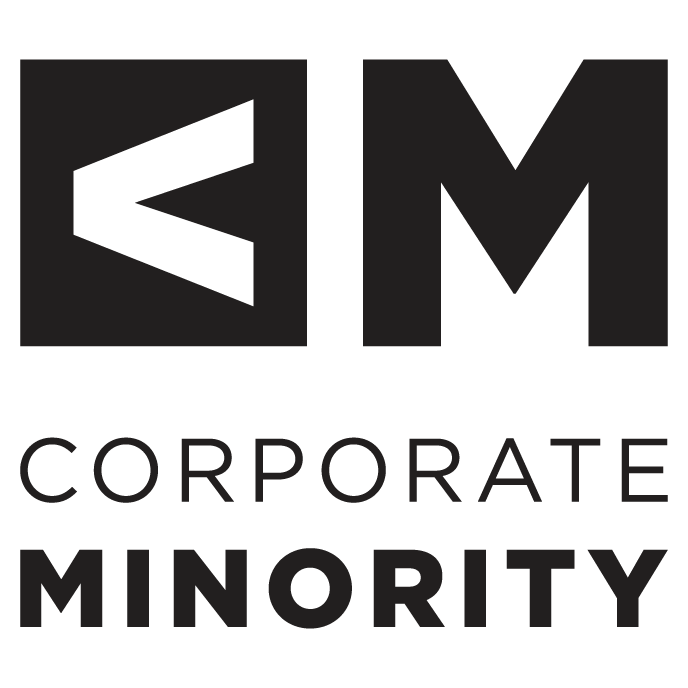 A career in law can be a very rewarding one. The journey to and within this profession can be both challenging and fulfilling. From the demanding educational process to long hours, to the challenging cases, being an attorney comes with positives and negatives. Our interview with Reanne Swafford-Harris provides insight for those seeking to begin a career in law.
A career in law can be a very rewarding one. The journey to and within this profession can be both challenging and fulfilling. From the demanding educational process to long hours, to the challenging cases, being an attorney comes with positives and negatives. Our interview with Reanne Swafford-Harris provides insight for those seeking to begin a career in law.
What type of lawyer are you?
I’m a Corporate Defense Attorney that specializes in employment litigation. This means that I counsel and defend corporate employers in all aspects of the employee-employer relationship. My practice is twofold, I ensure that the companies I represent are compliant and up-to-date with the latest California and Federal regulations and legal ordinances relevant to their industry, and when they are not, I defend them in the ensuing litigation.
What is the difference between a lawyer and an Attorney/Esquire?
A lawyer is someone who went to school for law and received a JD but did not pass the bar exam. An Attorney or Esquire is a lawyer who has obtained their JD and passed the bar. But the American English usage of these terms has become interchangeable; to the point of it being a distinction without a difference. So you likely will not hear anyone holding themselves out as either if they haven’t passed their state’s bar.
What is the process from law school to gaining employment?
Something I knew early on was that I wanted to go to a top law school to better my employment prospects, and so I attended UCLA Law. One benefit I gained from attending UCLA, was the large number of law firms who participated in the on-campus interviewing process (referred to as “OCI”), due to the school’s competitive ranking[1]. The OCI process took place the start of my second year and lasted about 3 days.
The law firm recruitment process is referred to as OCI because the firms host their interviews at your law school’s campus and/or a nearby hotel. Depending on the number of interviews you bid on and are selected for, you could end up in back to back interviews all day. If you do well in the initial screening interview, the firms call you back for an in-office interview. Usually, if you’re called back for the in-person interview you’re pretty much set unless you really mess it up. After that, you’ll get a second call back for a more informal interview over lunch or dinner. Your final call back will be an offer for a summer associate position. This is a paid internship for 8-10 weeks.
Is it crucial to go to a top tier law school?
It was for me. Finding a good job is where the quality of your law school really comes into play and makes a difference. The more distinguished the reputation of your school is, the more employment connections they are likely to afford. The legal profession, starting with law school, is still very elitist. As an example, if you attend a top-tier school, the number of law firms willing to participate in the OCI process is much larger, and they are willing to extend offers to a larger pool of students (i.e. the top 50%). In contrast, the lower ranked your school is, the less willing large firms are to accommodate the OCI process, and they will limit the offers they extend to the top 10-15% of students.
Something to keep in mind is most accredited law schools require the same amounts of tuition and costs of living. So I always recommend attending the highest ranked school you gain acceptance to. This will likely provide you with the best employment opportunities after graduation.
How soon do you need to pick the type of lawyer you want to be?
You usually choose the sector of the law you want to practice in during the end of the first year/beginning of your second year since this is when OCI begins. You might not know the practice area you want to specialize in, but you’ll need to know if you’re going to pursue government work, public interest, big law (i.e. corporate defense) etc.
Is it easy to change paths once you start practicing law?
It’s not easy. I would say it’s possible but not probable. The reality is, depending on the differences between the practice you switch to and the stage of your career you’re currently in, you’ll likely have to take a step back in seniority since you now have less experience in that specific field. This will not only affect your salary but your career advancement. For example, if you’re a mid-level civil defense attorney and you suddenly develop an interest in criminal law, you’ll essentially need to restart your career.
You don’t want to waste your time gaining experience in one area for years and then have to start all over trying to gain experience in another. It can be difficult to even change practice groups within the same law firm. Firms hire summer associate to fill a specific void and billing rates vary across practice groups, as do client expectations. So, most firms will not be willing to pay you the same rate to start in a practice group/specialty that you do not have prior experience in.
What’s something people should know about law school?
Law school does not necessarily prepare you to practice law. In my experience I was not prepared to practice litigation, manage a caseload, or communicate with clients; rather you are learning a lot more about public policy and theories of the law. Law school prepares you for taking the bar. There are a few elective classes offered as clinics and seminars that can help prepare you for litigation and trial advocacy.
What does it mean to be a partner?
When you are a partner you’re basically running your own business. You have equity in the firm and your benefits are that of an owner. This requires you to learn how to run and develop a book of business. It’s a lot of work to be a partner because you have to gain and maintain the client relationships that fund the firm. To enter the partnership, the other firm shareholders have to trust that you have enough business to cover the share of the company that they are giving up. Thus, you have to be voted in.
Note: The clients that an associate services, are usually those of the partners.
What’s the difference between working in-house and working for a firm?
Working for a firm means that you service multiple clients in a range of industries. On the other hand, if you work in-house, you work exclusively for one specific client. The benefit to this is that it often affords a more workable work/life balance. Most in-house positions only require a 9-6 workday commitment, and you’re only expected to be accessible M-F. The “downside” to this, is the pay cut that is often taken, as you are no longer subject to, and thus compensated for, the demanding billable hours of a law firm. The pay, of course, is relative to the company you work in-house for. For example, corporate counsel at Facebook will likely have a higher starting salary than that of a start-up.
Most attorneys view going in-house as an alternative to pursuing a partnership. Since the majority of in-house positions do not have the training in place to take on junior attorneys, it is common for someone to commit 4-5 years to the “firm life,” develop a strong client relationship and skill set and then be invited to work in-house for said client. This arrangement is actually still beneficial to their former firm as well, as they have one of their “own” to give them business.
What are some of the benefits of being a lawyer?
I think that is, of course, relative to an individual’s practice. For me, I love the financial freedom big law affords and being that I am so competitive, I like that it’s a field where your hard work will manifest on a regular basis. I liking winning and seeing the fruits of my labor in a tangible way. Every day I can go to work and get a win out of something, even if it’s just ruffling the feathers of opposing counsel during a meet and confer, or finding on point case law to support my argument in a motion. If you’re a competitive person then being an attorney is likely a good fit.
Being an attorney is also an empowering career. As a woman, I feel proud to say that I’m an equal in such a male-dominated field. Though I wouldn’t consider myself as someone who lacked confidence, passing the bar and litigating definitely validates a lot of the hard work I’ve put in, and it reassures me that I am capable of what’s to come.
What’s the work/life balance like?
In my experience, things are much more flexible as your career advances. There is little flexibility for junior associates in regards to the assignments you accept and how accessible you are. You’re on the clock 24/7, in that you are always expected to be accessible via email to answer partner/client questions.
As you get more senior, you are given more opportunities to manage your caseload though. Technology makes working remotely very convenient. Once you demonstrate that you are capable of doing what is asked of you, partners and senior associates are less concerned about where this work is done, as long as its timely and accurately done.
I know a lot of parents, for example, appreciate this. They can arrive at the office after dropping their kids off, and leave by 4:00 pm to handle their family responsibilities. After their kids go to bed, they will log back on around 8:00 pm and put in another 3-4 hours of work, as needed.
What are billable hours?
A gift and a curse of firm life is the billable hour requirement you’re subject to. Essentially (depending on the size of your firm) you are required to bill 1800-1950 hours per year. This annual goal has to be met without exception to vacations, sick days, personal time, etc. Another distinction is that a “billable” hour does not equate to time spent at work. It is literally only the hours of work that can be billed to a client. Time spent doing everyday office activities that make up a professionals day do not count towards this goal. Examples of non-billable hours include office meetings, mid-day office socials, bathroom breaks, socializing with co-workers, office admin tasks etc..
This means that even the most efficient person is unlikely able to bill an 8.0 hour day in 8 hours. That is why most attorneys have such long days at the office. If you want any holiday time off, or a vacation, you have to set your weekly billing goals with this information in mind so you get in front of the billing requirement. Additionally, being that corporate attorneys tend to be money driven, most bill beyond their firm’s minimum requirement. They annualize on average, 2000-2100 hours in order to receive an hour based bonus.
What are 3 skills every lawyer needs to have?
- Excellent time management
- Strong writing skills
- Effective communication skills (with clients and internal partners)
If you have these 3 skills you’ll do great.





